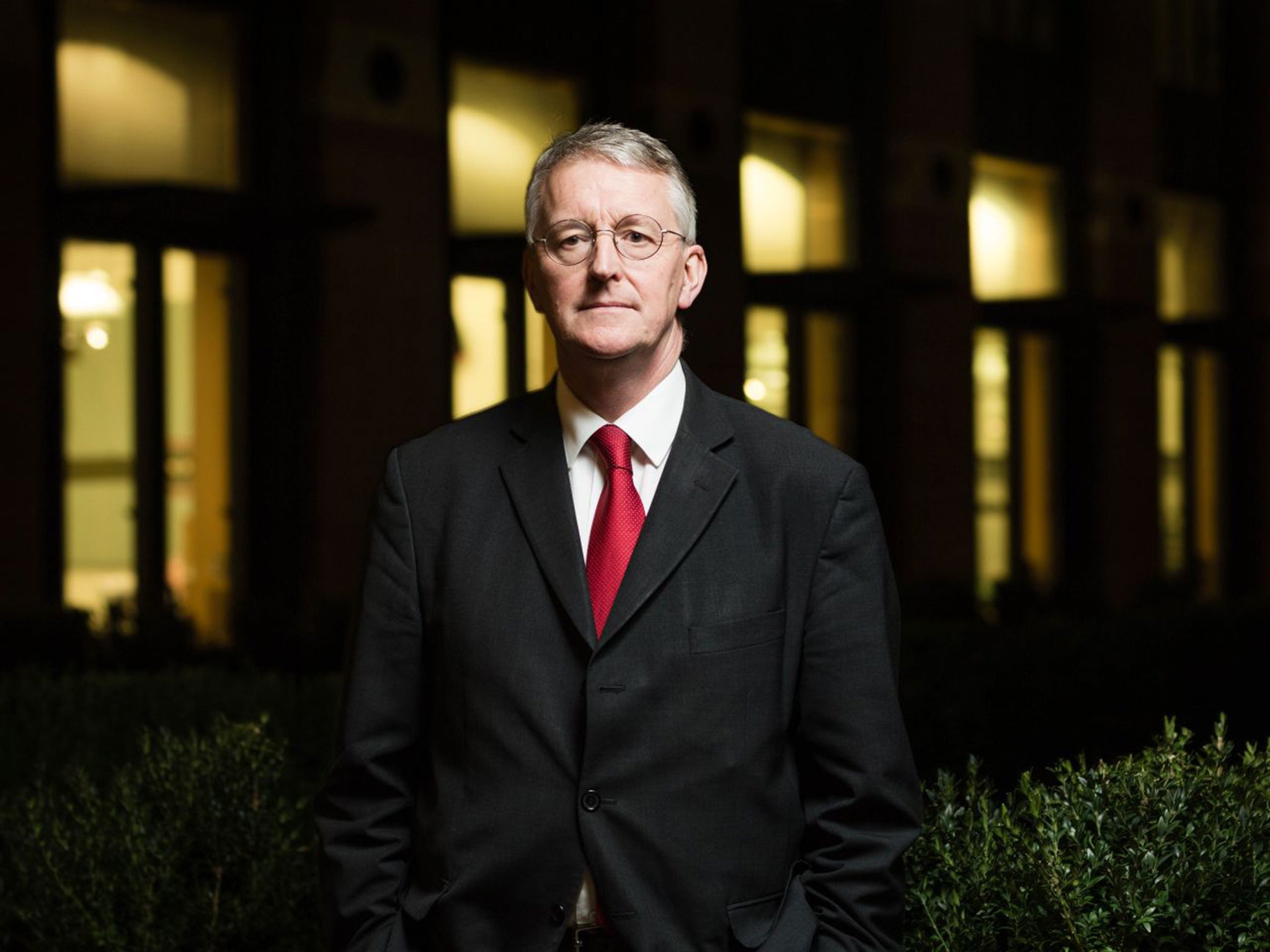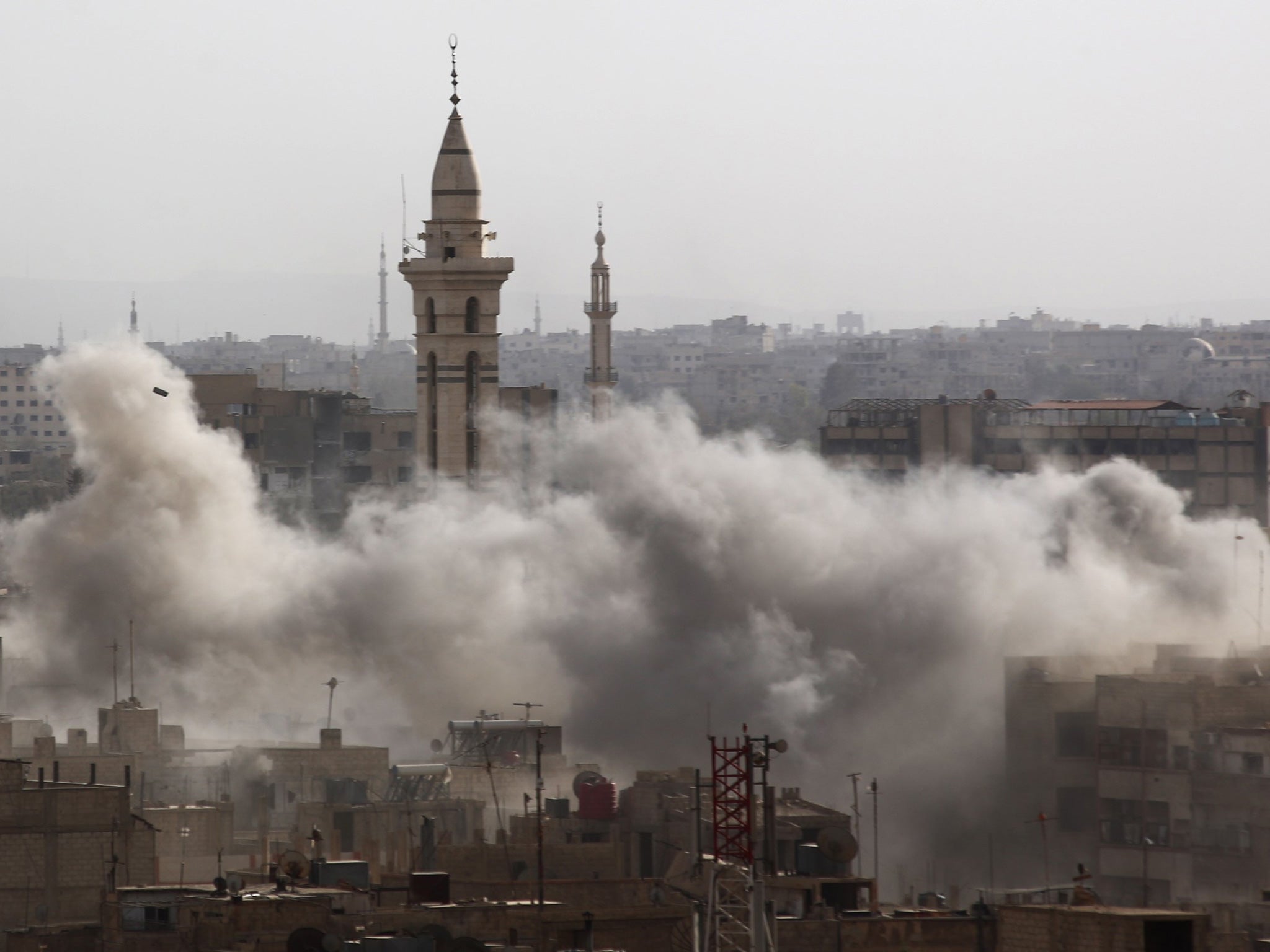Hilary Benn: Shadow Foreign Secretary says Labour won't back air strikes on Syria
The shadow Foreign Secretary says that, after Paris, the emphasis must be on peace talks and helping refugees

Your support helps us to tell the story
From reproductive rights to climate change to Big Tech, The Independent is on the ground when the story is developing. Whether it's investigating the financials of Elon Musk's pro-Trump PAC or producing our latest documentary, 'The A Word', which shines a light on the American women fighting for reproductive rights, we know how important it is to parse out the facts from the messaging.
At such a critical moment in US history, we need reporters on the ground. Your donation allows us to keep sending journalists to speak to both sides of the story.
The Independent is trusted by Americans across the entire political spectrum. And unlike many other quality news outlets, we choose not to lock Americans out of our reporting and analysis with paywalls. We believe quality journalism should be available to everyone, paid for by those who can afford it.
Your support makes all the difference.Labour’s opposition to any British involvement in military action against Islamic State (Isis) in Syria has intensified, despite the massacre in Paris.
Shadow Foreign Secretary Hilary Benn said the co-ordinated attacks on the French capital, which left at least 127 dead, were an “act of war” – but all but ruled out backing UK air strikes in response.
He said that the idea of British action against Isis in Syria should be put to one side until the country’s civil war had been brought to an end.
Mr Benn, speaking exclusively to The Independent on Sunday, said that the Government should drop plans for a new House of Commons vote authorising military attacks in Syria to concentrate on peace talks and providing humanitarian support for refugees.
His intervention dramatically undermines David Cameron’s hopes of joining the United States-led action against Isis in its Syrian heartland. The Prime Minister, who insisted the French fight against IS was also Britain’s, has maintained he will not ask MPs to authorise RAF bombing raids in Syria until a “political consensus” has been reached.
But Mr Benn said the “terrible events in Paris” meant it was “even more important that we bring the Syrian civil war to an end” before considering air strikes on Isis.
He outlined his thinking: “Why? Because the vacuum in which Isil/Daesh [Islamic State] in Syria thrives is a consequence of that civil war.
“Therefore I hope that the talks that are taking place really will redouble their efforts to say, look we’ve got a find a way of bringing this to a conclusion – we’ve got to bring this to an end.

“Because then, people can then really focus their efforts on the threat from Isil/Daesh and the circumstances in Syria will have changed.”
Mr Benn, who supports military intervention to protect civilians, said he did not think the Government was planning to come forward with a proposal to extend air strikes from Iraq into Syria.
But asked if he thought they should, Mr Benn said: “No.” He added: “They have to come up with an overall plan, which they have not done. I think the focus for now is finding a peaceful solution to the civil war.”
The shadow Foreign Secretary added: “The most useful contribution we can make is to support as a nation the peace talks that have started. That is the single most important thing we can do.”
Mr Benn’s intervention came in a wide-ranging interview in which he said he was “certain” that Jeremy Corbyn could become Prime Minister in 2020, and revealed that he first met the Labour leader as a youngster when he was doing his homework while his dad held meetings with political supporters.
However, it is Mr Benn’s remarks against Syrian intervention which are likely to cause the most concern in Downing Street.
The Prime Minister has insisted that it does not make sense to bomb Isis positions in Iraq – where Britain and other powers have permission to intervene – but not in neighbouring Syria.
Ministers, led by the Defence Secretary Michael Fallon, have warned that the jihadi terror group is planning attacks against Britain as well as France from its stronghold in northern Syria – and that the nominal border with Iraq is irrelevant because it is not recognised by the terrorists.
However, it is unclear whether there is a majority in the Commons to extend British military action into Syria, with up to 30 Tory MPs understood to have reservations.
While a sizeable number of Labour MPs support intervention, the vast majority are unlikely to defy the party leadership to support Mr Cameron.
MPs’ scepticism towards military action hardened after the Tory-led Foreign Affairs Select Committee called on the government to rule out the prospect until a strategy had been developed to defeat IS. Mr Benn said Russia’s intervention into the conflict to prop up President Bashar al-Assad had complicated matters even further, and called for a negotiated peace.
He said: “The government has come to realise the Russian military intervention has changed the position on the ground, and I think that has given them pause for thought.”
Mr Benn said Labour would only consider backing air strikes in Syria if Mr Cameron had the support of the United Nations.
He also outlined his plans for a reformed UN with five new members of the Security Council – Brazil, Germany, India, Japan and one country from Africa.
Mr Benn hailed Mr Corbyn’s election as Labour leader – insisting his “stonking victory” had “enthused a whole new generation of people to take part in politics”.
He said: “Jeremy is very, very open – there is ferment of ideas. Look at some of the positive policies that he has been putting forward – look at the railways. I think this is a time of great opportunity for the Labour party – but having said that we need to win the public’s trust and confidence. Jeremy knows that.”
Join our commenting forum
Join thought-provoking conversations, follow other Independent readers and see their replies
Comments